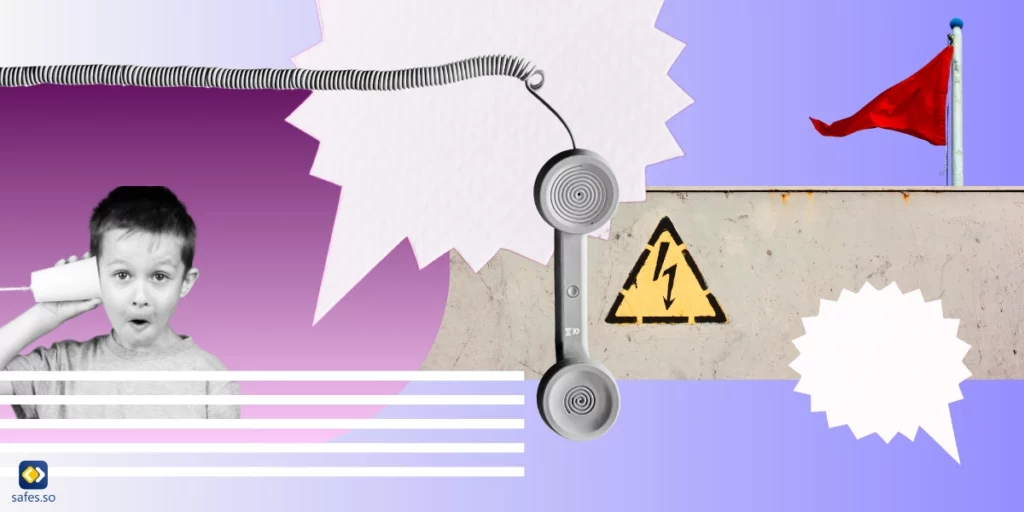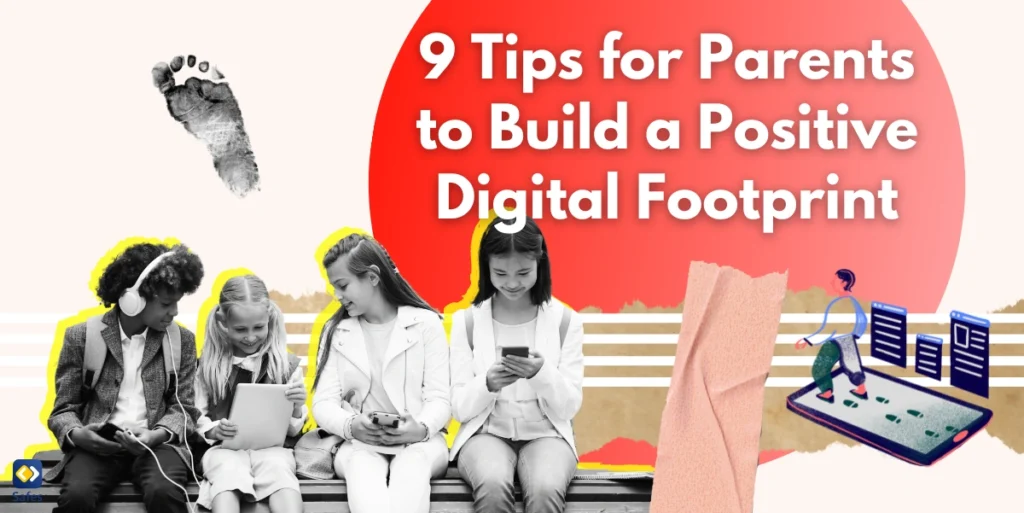Are you considering arranging or attending a playdate for your child? Congratulations on taking this step! Playdates provide children with the opportunity to enhance their emotional and intellectual skills in a new environment. Whether these gatherings occur in a park or at home, they allow kids to build lasting friendships and enrich their experiences.
Download and Start Your Free Trial of the Safes Parental Control App
If you have questions about playdates, such as what to bring to a playdate, how to coordinate or participate in one, and how to set playdate boundaries, this guide will offer advice to help you plan effectively.
Scheduling a Kids Playdate
When it comes to planning and arranging playdates for kids, here are some tips to keep in mind:
Inviting kids to a playdate: Connect with parents during school functions, after-school activities, or local community events. Show interest in arranging a playdate and share contact details.
Empower your child to make choices: Involve them in deciding who they want to invite over. If they’re unsure, observe their interactions at school, the playground, or other social settings. Remember, playmates don’t have to be the same age. Bringing together kids of different ages can bring about advantages, like older children mentoring younger ones and embracing the role of being the “big kid.”
Keep the group small: For toddler playdates, limit the group to one friend at a time. This helps to prevent overcrowding and the possibility of any child feeling left out. Managing a smaller number of children also makes it easier to share toys.
Manage the duration: Determine an appropriate duration for the playdate. For a first playdate, 1.5 hours works well, while 2.5 hours is adequate for familiar friends. Longer durations may cause boredom and exhaustion in children.
Discuss food preferences: Since playdates often entail snacking, it’s important to communicate with parents about any food allergies or sensitivities their kid may have. Knowing their preferences can help prevent conflicts and arguments during snack time.
Consider inviting parents: Some kids are shy without their parents. Parents may also be concerned about a new location. For little kids or first visits, offer the other parent or babysitter to join you for coffee. This allows kids to play while parents chat nearby. You can also suggest they wait until their kid feels comfortable before leaving. Seeing a familiar face might help children adapt to new environments.
Preparing for Kids Playdate
Check out these tips to prepare for a great kids playdate:
- Minimize screen time: Limit screen time during playdates to promote social and communication skills. Organize socially engaging activities instead of relying on TV or electronic devices. To prevent any misunderstandings, let the other parent and your child know in advance what you expect.
- Involve your child in planning: Engage your child in setting the agenda for the playdate. Talk about the value of greeting their buddy and ask your child for ideas on activities and toys their friend might enjoy during their time together.
- Manage favorite toys: Your child may be hesitant to share their favorite toys, so temporarily hide them to avoid arguments. Provide alternatives such as Legos, board games, play dough, sandbox, and DIY projects, along with a few toys your child is comfortable to share. Don’t be surprised if your child suddenly claims ownership of toys that their friend shows interest in! Explain that their friend won’t be taking any toys home. Teaching children how to manage their emotions is a crucial skill that can help reduce irritability, particularly when it comes to sharing toys.
- Plan a break: To relax the kids during the playdate, create a serene atmosphere. Think of other choices, for instance, making simple no-bake cookies together, reading a book, taking a short walk outside, or engaging in an easy craft project.

During the Playdate
Consider the following tips during playdates at home:
- Help them warm up: Just like any other date, the first few moments can be a bit awkward. Get the kids involved in cooperative games or crafts. You can start a game or offer shared toys such as building blocks or a train set. Once they feel more at ease, take a step back and let them engage on their own.
- Encourage cleanup: Set rules such as cleaning up before proceeding to the next activity. This keeps the play area tidy. If they resist cleaning, you can say, “Before we have snacks, let’s tidy up the Legos.” Linking cleanup to a positive outcome motivates children to participate and helps them understand the benefits of cleaning up.
- Offer open-ended activities: Provide a variety of open-ended activities for the playdate. Things like play dough, sandbox, arts and crafts supplies, and dress-up clothes work well. Allow the children to choose and switch between activities or create their own games.
- Stay available and supportive: Watch the kids play and gently help if they struggle to get along or don’t know what to do next. Young children, especially toddlers, may require assistance in remaining engaged and playing together. Be available while still giving them space to interact independently.
- Supervise, but don’t interfere: While it’s important to supervise the playdate, don’t interfere unless necessary. Allow the children to solve their own challenges and learn while playing together. However, be prepared to step in if the situation turns heated or unsafe.
Resolving Playdate Conflicts
Here are some tips for solving problems that come up during children’s playdates:
- Let them try at first: When disagreements arise, give the children some space to resolve issues themselves before stepping in. They can usually figure things out on their own.
- Step in if needed: If a quarrel evolves into yelling or physical violence, intervene softly. Make it obvious that rough behavior will not be accepted, and help them find an agreement.
- Separate to settle down: If tensions remain high, give space until emotions cool off. Then revisit the problem later.
- Offer distractions: When frustrations arise, suggest a new shared activity to help shift the focus.
- Praise positive interactions: Notice examples of sharing, listening, and compromise. Comments like “You made your friends happy by allowing them to play too” emphasize positive social skills.

Saying Goodbye and Concluding the Playdate
To smoothly conclude the playdate, consider the following suggestions:
- Give a friendly reminder: Notify children when their playtime is coming to an end. 10 to 15 minutes before pick-up time, give the kids a heads-up so they can finish up and prepare emotionally. For example, you could say, “Just so you know, your mommies and daddies will be here soon to pick you up.”
- Complement what they did: As you tidy up, comment on how well they shared, communicated, and resolved disputes. Positive feedback builds confidence.
- Preserve a memento: Send any crafts or baked goods the kids created during the playdate with the guest. Kids enjoy showing their parents what they have made. They also get to carry around a delightful memento of the playdate.
- Pack belongings together: Have the children help collect their toys and stuff while chatting about their favorite moments. Working as a team promotes cooperation.
- Create a positive farewell: Thank them for coming and for the enjoyable time you had together. Express your excitement for the upcoming playdate to them. By showing appreciation, you can ensure a happy ending to the playdate.
Your Kid’s First Playdate Invite
After having a playdate at your house, your child may return home eager to tell you that they have been asked to another playdate. As a parent, this new social experience may raise some questions:
How to respond to a playdate invite?
Thank the other parents for the invitation and provide a prompt response regarding your child’s availability. Ask any pertinent questions to ensure a successful playdate.
What’s expected of my child during the playdate?
Gently reminding your child to share, take turns, and use nice language might help alleviate any jitters or anxiety. Remind them that the playdate is all about having fun and building connections, not about winning.
What to bring to a playdate?
It is thoughtful to provide a small snack. Discuss any dietary allergies or preferences with the other parents beforehand. Consider taking additional clothing, comfort items such as a favorite toy or blanket, and any essential prescriptions.
Do you take a gift to a playdate?
Gifts are typically not expected on playdates, but if you do want to bring anything, think about a tiny, affordable gift connected to the playdate activity, such as sidewalk chalk for an outdoor playdate or a little craft kit for a creative one.
How do you reject a playdate nicely?
Politely express your appreciation for the invitation and explain why you are declining. Suggest another date or offer to schedule a playdate in the future.
Discover Safes: Protecting Your Child’s Online Journey
As technology grows more integrated into everyday life, it is critical to ensure children’s digital safety. Online risks, whether browsing the internet, gaming, or utilizing social media, can be difficult for modern parents to manage.
Introducing Safes – a comprehensive parental control app developed to prepare families for today’s digital landscape. Safes offers features such as website blocking, screen time limitations, and real-time location tracking to help children develop healthy habits and protect them from inappropriate content.
The Safes app has several major features, including:
- Internet Filtering: Safes give parents the ability to restrict which websites their children can visit and what information they can view online. Inappropriate searches and downloads are blocked.
- Screen Time Management: Set limitations on total device or individual app usage. Safes delivers use alerts and allows you to easily limit distracting screen time.
- Location Services: Know where your child is with location tracking. Customizable safety zones send alerts if a boundary is crossed.
- Activity Monitoring: View reports on apps used, websites visited, and your child’s device activity.
Is Safes the solution you’ve been searching for?
Take use of our parental control software right now. Download Safes now to begin your free trial and enjoy the best online safety available on all devices, including Android, iOS and Windows.
With Safes as your digital parenting companion, you’ll have the tools to create a safe and nurturing online environment for your child to thrive.
The End Note
Children get to explore their imaginations and creativity during playdates, and they also pick up valuable social skills. They learn the importance of taking turns, sharing toys, and communicating their needs. Playdates provide children with the opportunity to comprehend and resolve problems while also learning about others’ strengths and shortcomings.
These interactions develop a sense of belonging and boost self-confidence, as kids look forward to socializing and making friends. Knowing the meaning of a playdate helps parents create positive experiences for both their kids and their friends. Now, you have the knowledge and confidence to plan successful playdates for your child, leaving behind any confusion or uncertainty.
Your Child’s Online Safety Starts Here
Every parent today needs a solution to manage screen time and keep their child safe online.
Without the right tools, digital risks and excessive screen time can impact children's well-being. Safes helps parents set healthy boundaries, monitor activity, and protect kids from online dangers—all with an easy-to-use app.
Take control of your child’s digital world. Learn more about Safes or download the app to start your free trial today!




